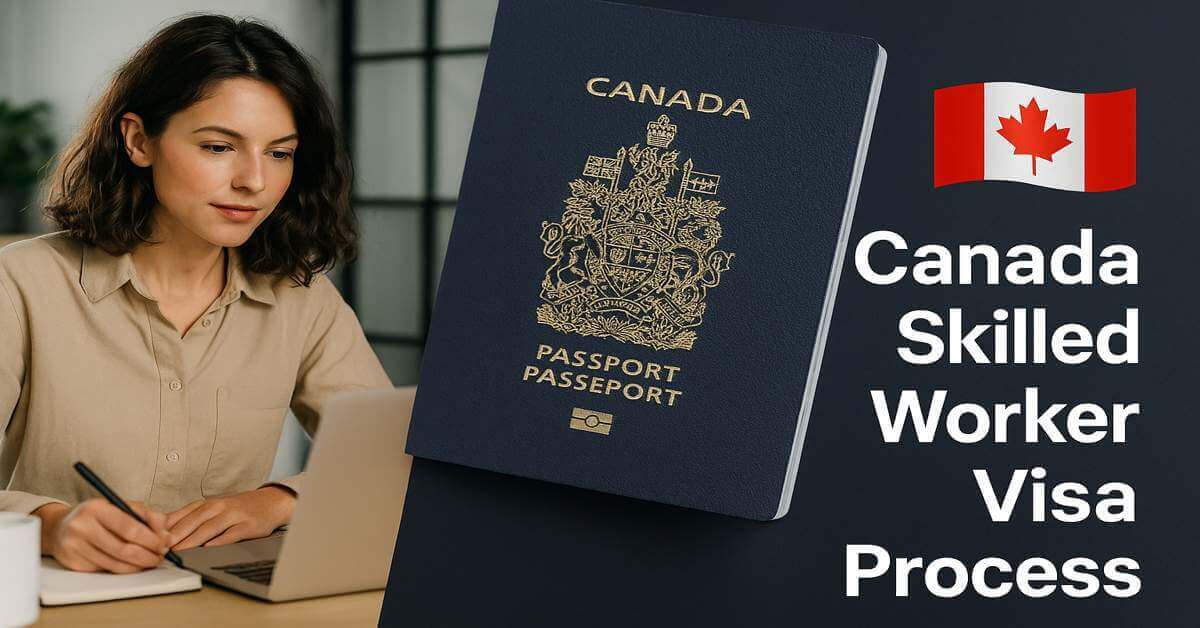Germany Needs Drivers on Work Visas in 2025 – Apply Now

Are you a licensed motorist who aspires to work in Germany? This may be your most advantageous opportunity! Germany is currently experiencing a severe shortage of professional drivers in the public transport, maritime, rail, and freight sectors as of 2025. The country has introduced special work visa provisions and fast-track licensure pathways to attract international drivers, in response to the increasing demand for train, bus, and ship operators and the over 70,000 vacancies in heavy goods vehicle (HGV) driving alone.
The following article offers a comprehensive roadmap, including the availability of driver positions in Germany, the necessary qualifications, salary expectations, visa options, and a step-by-step guide to securing a driving job in Germany legally and successfully in 2025.
Driver Occupations in Demand in Germany:
In 2025, Germany will experience staff constraints in the following seven categories of driving occupations:
| Driver Occupation | Average Monthly Salary (€) | Notes |
|---|---|---|
| Heavy Goods Vehicle (HGV) Driver | €2,300 – €3,200 | Long-distance and freight logistics |
| Bus Driver (Urban and Intercity) | €2,200 – €3,000 | Includes school buses and public transit |
| Train Driver (Railway Operator) | €2,800 – €3,800 | Requires train-specific qualification |
| Tram or Metro Driver | €2,400 – €3,200 | Urban mobility services |
| Inland Shipping Barge/Boat Operator | €2,500 – €3,700 | Includes cargo transport on rivers and canals |
| Seagoing Ship Mechanic or Officer | €3,000 – €4,500 | Requires STCW certification |
| Port Logistics & Vehicle Operators | €2,300 – €3,500 | Port equipment operators with vehicle handling skills |
Check Also: Visa Sponsorship Hotel Jobs in Germany – Apply Now
Driving License Requirements in Germany for Driver Jobs:
| Occupation | Required EU Driving License Type |
|---|---|
| HGV Driver | C1, C1E, C, CE |
| Bus/Coach Driver | D1, D1E, D, DE |
| Tram or Metro Driver | Requires special public transport license in Germany |
| Train Driver | German-specific license post-training |
| Ship Operators (Inland/Sea) | STCW Certificate (Maritime), EU Boat License (Inland) |
Depending on the country of origin, non-EU license bearers have the option to either convert their license or take exams in Germany. Certain countries offer simplified conversions.
Other Qualification Requirements To Work as Driver in Germany:
- Minimum Age: Freight and transit drivers will typically be 21 years of age or older.
- Medical Fitness: A certificate of excellent health and a vision examination are required.
- Proof of Qualification:
- EU Driver Qualification Card (or an equivalent training certification).
- In Germany, it is compulsory for rail and ship operators to undergo specialized training.
- Background Check: Criminal and driving records are unblemished.
- Basic German Language Proficiency: A minimum of A2/B1 is required for the purpose of communicating safety instructions.
Benefits of Driver Jobs:
- In high demand: There is a consistent employment availability for drivers in the following sectors: logistics, delivery, transport, tourism, and ride-hailing.
- Hours of Work That Are More Flexible: Uber and Bolt are among the numerous driving positions that provide schedules, part-time work, or self-employment opportunities.
- Earnings that are satisfactory with overtime: Salaries that are competitive, with additional compensation for overtime, night duties, and extended routes.
- Low Educational Requirements: The majority of positions necessitate only a valid driver’s license and a rudimentary education, making them ideal for immediate employment.
- Tips and Bonuses: Cash gratuities or performance incentives are frequently awarded to drivers in taxi services, delivery services, or hospitality.
- Visa Sponsorship (in certain countries): The high demand for immigrant chauffeurs may prompt countries such as the United Arab Emirates, Canada, the United Kingdom, and Australia to sponsor them.
- Independence in the Workplace: Driving positions provide a more autonomous work environment with minimal supervision.
- Opportunities for Travel: Long-haul and intercity drivers have the opportunity to explore new regions and occasionally cross international borders.
- Accommodation and meals are provided at no cost: Companies, particularly those located in the Middle East, offer lodging, meal, and transportation allowances.
- Professional Development: Drivers have the potential to advance to positions such as fleet supervisor, dispatcher, or logistics coordinator.
- Job Security: Driver positions are stable and resilient during economic downturns due to the fact that transportation is an essential service.
- Insurance and Benefits: Health insurance, retirement plans, and leave entitlements are frequently included in full-time positions.
4 Work Visa Options for Drivers in Germany:
The following visa categories are permissible for chauffeurs from non-EU countries to operate in Germany:
| Visa Type | Description |
|---|---|
| Work Visa for Qualified Professionals | For drivers with recognized vocational training and a job offer |
| Special Regulations for Professional Drivers | Allows entry without full recognition for vocational qualification |
| EU Blue Card (if applicable) | For higher qualifications (not common in driving sector) |
| German Opportunity Card | For job seekers with vocational training, valid for up to 1 year |
In the majority of cases, a valid job contract and recognition of your qualifications are prerequisites for all work visas. Drivers are subject to distinct regulations; refer to the subsequent section.
Applying for Driver Job and Work Visa for Germany:
Step 1: Check Your Eligibility
- Guarantee that you possess a legitimate driver’s license in the appropriate category.
- Recognize your qualifications through the recognition process in Germany, if necessary.
- Based on your qualifications, ascertain the appropriate visa type.
Step 2: Search for Jobs
Investigate verified job openings on official platforms such as:
- Make it in Germany Job Listings
- LinkedIn, Indeed Germany, Monster.de, StepStone.de
Step 3: Prepare Your Documents
- CV (in Europass format)
- A job proposition or contract from a German employer
- Validation of qualifications and driving license
- Biometric photo and passport
- Proof of health insurance and visa application form
Step 4: Apply for the Work Visa
- Contact the German consulate or embassy in your area.
- Apply under Section 18a/18b of the German Residence Act
- Wait for Federal Employment Agency approval
Step 5: Travel to Germany
- Travel and complete any necessary local licensing exams or conversions after the visa is granted.
- Commence employment and complete periodic training every five years, as mandated by German regulations for chauffeurs.
Conclusion:
Germany is not merely employing chauffeurs; it is urgently reliant on them to maintain the functionality of its public transportation system and economy. There is a place for you in Germany’s future, regardless of whether you are a ship navigator from South America, a bus driver from Africa, or a hauler from Asia.
A stable driving profession in one of the world’s top economies may be within reach with the assistance of training programs, simplified visa pathways, and competitive salaries in 2025. And if you are interested in investigating training opportunities to become a driver in Germany?
Frequently Asked Questions:
Is German work visa easy?
In order to apply for the German Work Visa, you must have a job offer from a German-based employer. The employer must have also provided you with an employment contract in order for you to apply for the visa. For assist in locating job possibilities in Germany, consult our German Job Hunting Guide.
Is it possible to get a job in Germany from Pakistan?
Without a visa, you are allowed to enter Germany and remain for a maximum of three months. Applying for a residence permit that permits you to engage in gainful employment is required if you wish to work in this location. A visa is essential for citizens of all other countries.
What is the minimum salary for work visa in Germany?
A employment contract of at least six months is required. Your gross annual salary must be within the range of €41,041.80.



